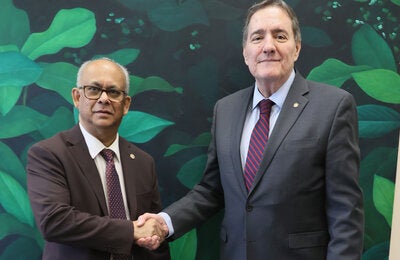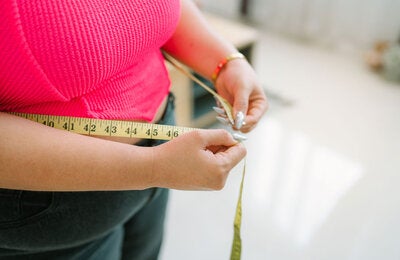
Lima, 10 september 2020 (PAHO/WHO).- On September 2 of 2020, the President of the Republic of Peru, Martín Vizcarra Cornejo, enacted the Law of Medical Emergency and Comprehensive Care of Cancer in Children and Adolescents. This Law has three main aspects: (1) guaranteeing universal health coverage for early diagnosis and all cancer treatments in children and adolescents, regardless of whether they have health insurance up to 18 years of age; (2) granting special paid leave in the workplace (up to 1 year) to parents of children and adolescents diagnosed with cancer; and (3) creating the National Childhood and Adolescent Cancer Program, which would oversee planning activities to improve care for children with cancer and a National Pediatric Cancer Registry.
The Law provides that, in the event of not having a formal job, the father or mother receives a bonus equivalent to 2 minimum living wages during the hospital cancer treatment duration. For the first time, the measure includes patients who turn 18 during active treatment, allowing them to complete it.
History of the Law
Since 2016, a team of Peruvian professionals published different scientific articles related to the abandonment of treatment, delays in diagnosis, and poor care conditions in children with cancer in Peru. In 2019, Peru was chosen as the index country of the WHO Global Initiative for Childhood Cancer, and 13 working groups were formed with pediatric oncologists, pediatric hematologists, medical personnel, foundations, and international collaborators.
During the COVID-19 pandemic, the problem of childhood cancer in Peru became evident. A study published in the journal The Lancet Oncology, prepared by the Pan American Health Organization and the Latin American Society of Pediatric Oncology, within the framework of the WHO Global Initiative for Childhood Cancer, collected experiences and opinions about childhood cancer. Specialists from oncology centers in Latin America revealed a significant number of suspensions (between 30 and 80%) in radiotherapy treatments, oncological surgery, outpatient procedures, and even modifications in oncological treatments (35%) due to difficulties in the availability of drugs.
At the end of April 2020, the legislative initiative was presented in the Congress of the Republic of Peru. In the end, five parliamentary benches presented the Law, and a group called "Colectivo Ley Cáncer Infantil Ya" was born. On July 31, 2020, it was approved by the Plenary of the Congress of the Republic of Peru, and on September 2nd, it was promulgated by the Executive.
The social movement: "Child Cancer Law Now"
This group is made up mainly of doctors specializing in childhood cancer and parents of children with cancer. Among the group's achievements is having a cohesive group of health professionals and parents (grouping up to 150 families). Since April, the collective has met weekly to discuss options to improve communication campaigns and stakeholder engagement. During this time, it was possible to have a greater presence in social networks in communication media and other platforms. Similarly, many other people joined and supported, for free, in designing posters for communication campaigns and contacts through the web. The PAHO office in Peru accompanied the initiative at all times and provided technical support for this purpose. Finally, some national and international collaborators supported the Law with written or public support, including doctors, politicians, and foundations.
Impact of the Law
The Law's estimated impact is enormous: saving at least 650 lives per year and a gain of 169 thousand years of healthy life for children and adolescents who receive successful treatment and survive to adulthood in Peru. PAHO/WHO congratulates Peru for this important achievement, which shows once again what can be achieved in pursuit of health when all parties work for a common goal even in a pandemic situation.
Photo: PCM



